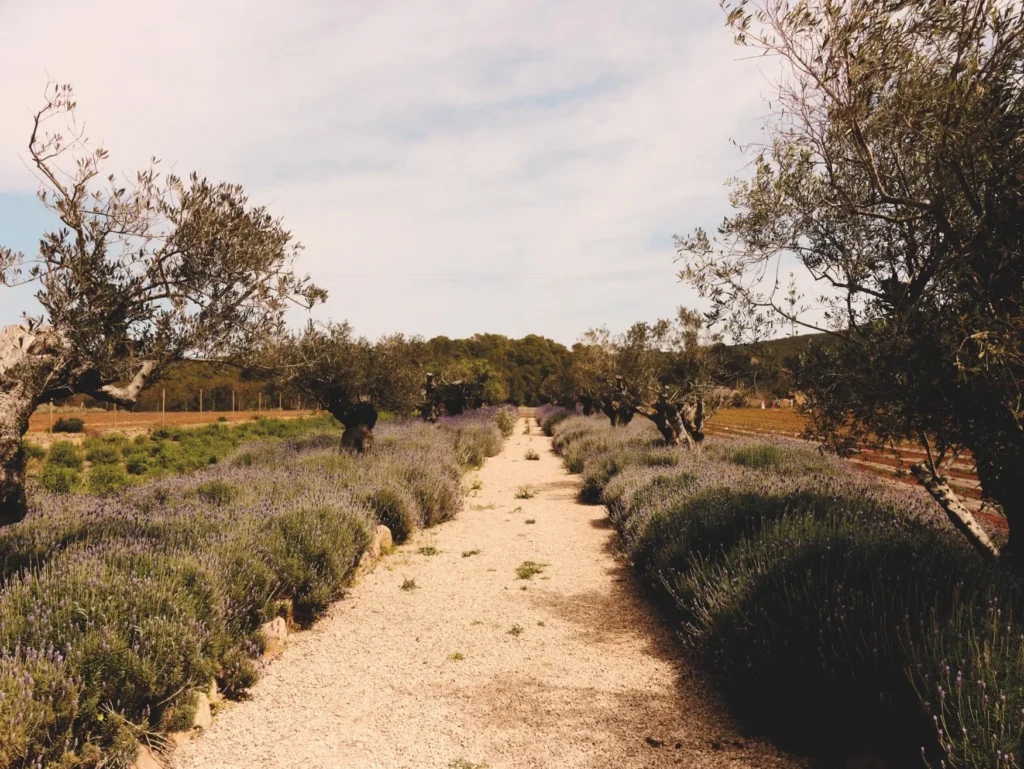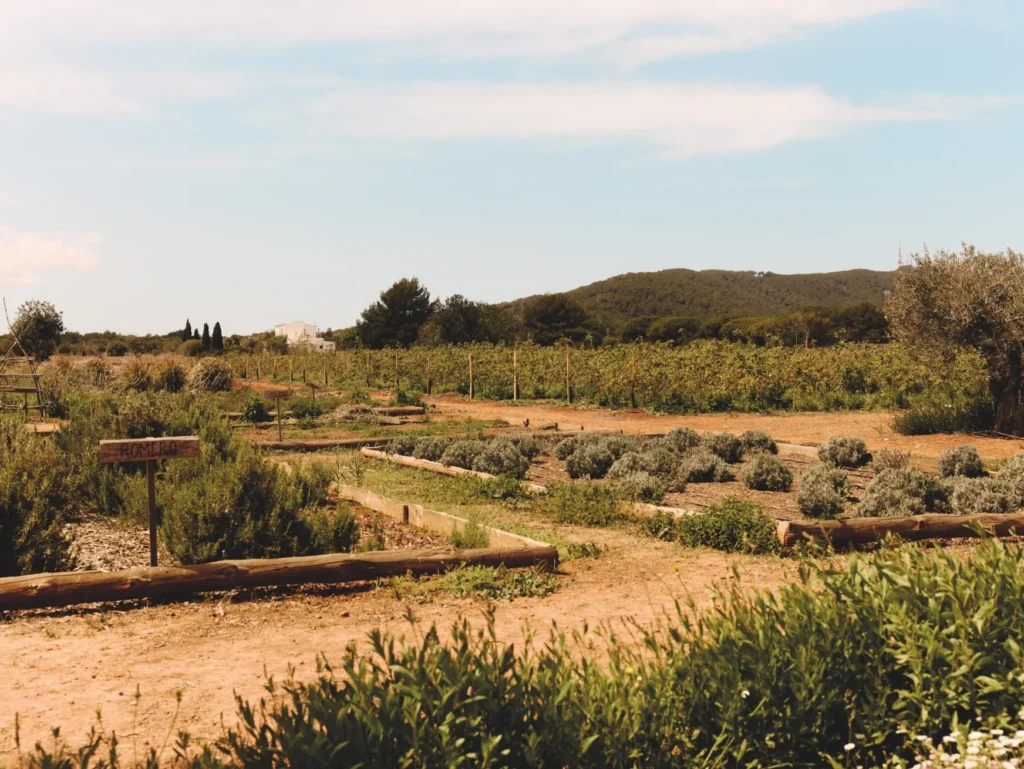A forager’s
guide to ibiza
Wild Thyme[Thymus vulgaris]
The sweet, aromatic leaves are used in cooking to add flavour to various dishes. Besides its culinary uses, thyme also has medicinal properties. In Ibiza, it is often brewed into tea to soothe sore throats and coughs or used topically as an antiseptic.
Rock Samphire[Crithmum maritimum]
Rock samphire, also known as sea fennel, grows along coastal cliffs and rocky shores in Ibiza. Its succulent leaves have a sealike, salty taste. Historically, rock samphire was believed to have medicinal properties and was used to treat various ailments, including vitamin C deficiency.

Wild Asparagus[Asparagus acutifolius]
Wild asparagus grows abundantly in the scrubland and countryside of Ibiza. It’s typically found in rocky areas and along roadsides where, in early spring, foragers gather to harvest the tender shoots.
Wild Fennel[Foeniculum vulgare]
Wild fennel is an iconic sight in the Ibiza countryside, characterized by its feathery leaves and vast, yellow, umbrella-like flowers. Both the leaves and seeds of wild fennel are edible and have a sweet, anise-like flavour. Wild fennel is revered for its digestive and diuretic properties.

Aloe Vera[Aloe barbadensis Miller]
In Ibiza, as in many other parts of the world, aloe vera has a long history of medicinal use. The gel inside the leaves is known for its soothing and healing properties, particularly for skin conditions such as sunburn, cuts, and minor burns. Locals often apply the gel directly to the affected area for relief.
Rosemary[Rosmarinus officinalis]
Rosemary thrives in Ibiza’s Mediterranean climate. It is often found growing wild on hillsides and in rocky areas. The woody stems and fragrant leaves of rosemary are commonly used to flavour local dishes cooked over coals. Medicinally, rosemary is used to improve memory and concentration, as well as to relieve muscle pain and inflammation.
